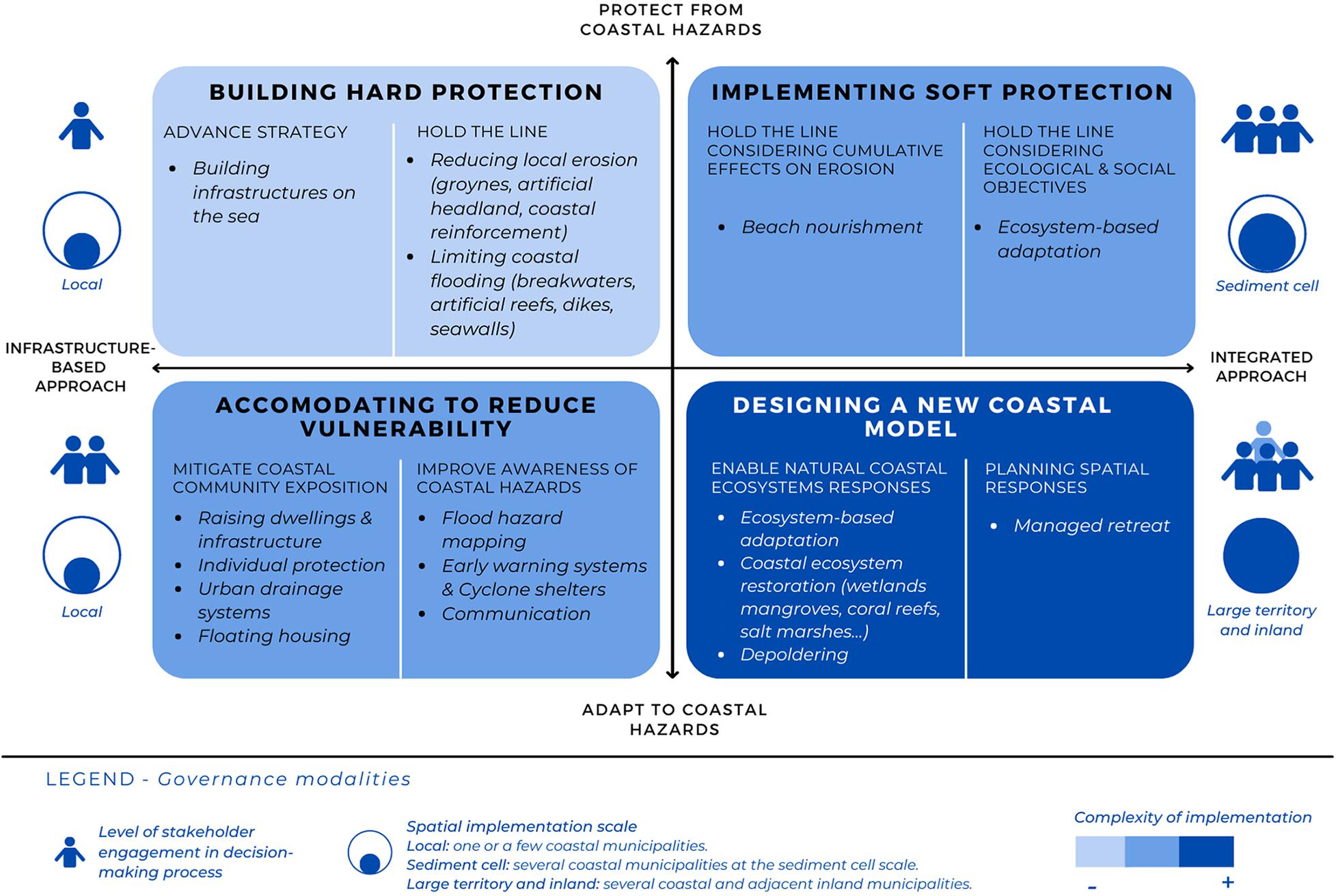Ahmedabad
(Head Office)Address : 506, 3rd EYE THREE (III), Opp. Induben Khakhrawala, Girish Cold Drink Cross Road, CG Road, Navrangpura, Ahmedabad, 380009.
Mobile : 8469231587 / 9586028957
Telephone : 079-40098991
E-mail: dics.upsc@gmail.com

State of Global Coastal Adaptation
News: Recently, the journal Nature Climate Change published a new study on the status of global coastal adaptation.
What is coastal adaptation?
• Coastal adaptation refers to the strategies put in place to address and mitigate the impacts of climate change, sea-level rise, and other environmental changes on coastal areas.
What are the coastal adaptation strategies?
• Protection from Sea-Level Rise, Mitigation of Erosion, Resilience to Extreme Weather Events, Sustainable Land Use, Restoration of Natural Ecosystems, Community Engagement, Infrastructure Resilience and Early Warning Systems
What is the state of coastal adaptation study?
The study assessed the state of global coastal adaptation by analyzing 61 coastal case studies, distributed across the world classified into four categories:
• A1 - Urban areas with relatively high population and asset densities.
• A2 - Urban areas with relatively lower population and asset densities or middle-size cities.
• A3 - Rural areas with high-value economic activities such as agriculture or tourism.
• A4 - Rural areas with non-market high-value features like cultural or natural.
• Mumbai, Ghoramara (Sunderbans), Puri (Odisha) and Konkan regions fall under the ‘moderate-to-high’ category.
What is the need for coastal adaptation?
• Increasing Coastal Hazards: The combination of increasing coastal hazards and demographic concentration in coastal areas makes the need for adaptation urgent.
• Climate Change and Sea-Level Rise: With the Earth’s climate changing, ice sheets and glaciers are melting, leading to rising sea levels. This poses a significant threat to over 300 million people living in coastal areas, including 20 of the planet’s 33 megacities.
• Protection of Ecosystems: Coastal adaptation is essential to protect coastal ecosystems, such as wetlands, mangroves, and coral reefs. These ecosystems provide various services, including habitat for marine life and storm surge protection.
• Addressing Local Situations: Human populations living on the coasts are developing responses to address local situations. A synthesis of the literature on responses to coastal adaptation allows us to highlight different adaptation strategies.
Way Forward
• Establish a framework for adaptation that is integrated within current coastal management processes and practices and takes a broader view on the subject.
• Providing Nature-Based Solutions - For example, mangrove restoration, beach nourishment, and wetland preservation.
• Resilient infrastructure along the coasts

Address : 506, 3rd EYE THREE (III), Opp. Induben Khakhrawala, Girish Cold Drink Cross Road, CG Road, Navrangpura, Ahmedabad, 380009.
Mobile : 8469231587 / 9586028957
Telephone : 079-40098991
E-mail: dics.upsc@gmail.com
Address: A-306, The Landmark, Urjanagar-1, Opp. Spicy Street, Kudasan – Por Road, Kudasan, Gandhinagar – 382421
Mobile : 9723832444 / 9723932444
E-mail: dics.gnagar@gmail.com
Address: 2nd Floor, 9 Shivali Society, L&T Circle, opp. Ratri Bazar, Karelibaugh, Vadodara, 390018
Mobile : 9725692037 / 9725692054
E-mail: dics.vadodara@gmail.com
Address: 403, Raj Victoria, Opp. Pal Walkway, Near Galaxy Circle, Pal, Surat-394510
Mobile : 8401031583 / 8401031587
E-mail: dics.surat@gmail.com
Address: 303,305 K 158 Complex Above Magson, Sindhubhavan Road Ahmedabad-380059
Mobile : 9974751177 / 8469231587
E-mail: dicssbr@gmail.com
Address: 57/17, 2nd Floor, Old Rajinder Nagar Market, Bada Bazaar Marg, Delhi-60
Mobile : 9104830862 / 9104830865
E-mail: dics.newdelhi@gmail.com